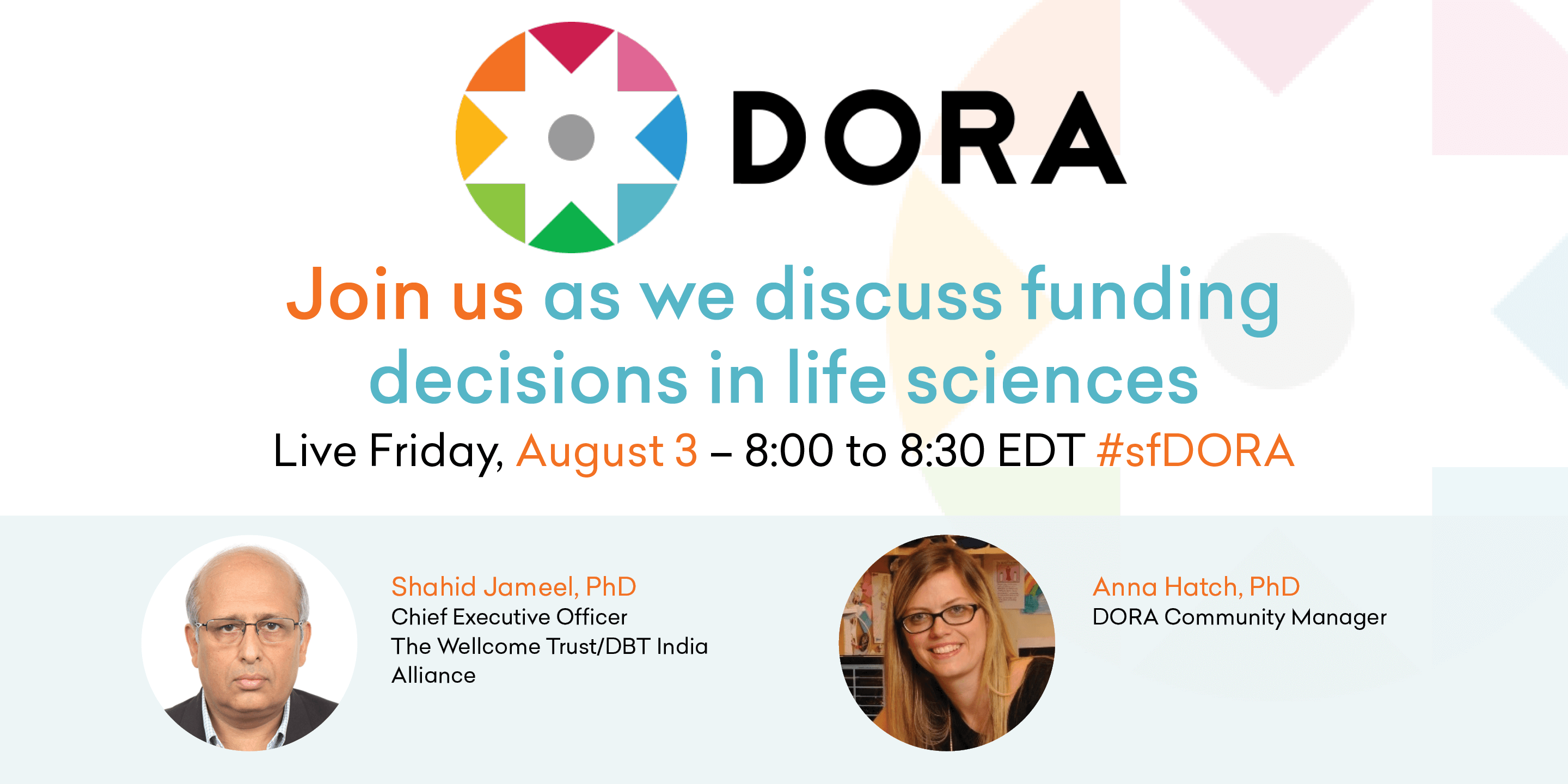
On Friday August 3, we hosted the second interview in our series on research assessment. Dr. Shahid Jameel, Chief Executive Officer of the Wellcome Trust/DBT India Alliance, shared his experience evaluating researchers and making biomedical funding decisions in India. Dr. Jameel emphasized, “People are the most important thing in an institution. Hiring the right people and assessing them well should really be our priority.”
The Wellcome Trust/DBT India Alliance funds fellowships that support academic researchers in the biomedical sciences in India. It is an equal partnership between Wellcome and the Department of Biotechnology within the Government of India. The goal of the organization is to fund the best and brightest researchers and to increase the number of places in India that perform high quality international research. Dr. Jameel noted that the ultimate aim of the Alliance is to develop the next generation of science leaders for India. The Alliance has been around for ten years, and in that time they have given 320 awards. The Alliance currently has around 170 active awards at 93 institutions across the country.
Obtaining grant funding is often seen as a critical step for career advancement, and the presence or absence of external funding can influence hiring and promotion choices. The Alliance has a three-step evaluation process for its awards. First, investigators submit a letter of intent and CV. Staff at the Alliance review the letters and invite a subset of applicants to submit a full application. Finalists are then selected for an in-person interview before final decisions are made.
Leading scientists outside of India are asked to review the invited applications. Dr. Jameel explained that the reason for this is not because India lacks good reviewers. They have a lot of exceptionally qualified individuals to choose from, but rather they look outside of the country because the Alliance pays close attention to conflicts of interest. He says the relatively small size of the scientific enterprise creates conflicts of interest. It would be quite easy for a reviewer to evaluate the application of a colleague or a colleague’s student. Using outside reviewers helps to maintain a certain level of fairness and transparency in the evaluation process.
“People are the most important thing in an institution. Hiring the right people and assessing them well should really be our priority.”—Dr. Shahid Jameel, CEO, Wellcome Trust/DBT India Alliance
Reviewers are given explicit instructions to avoid journal impact factors when evaluating the merit of research papers. However, it is difficult to know whether a reviewer follows the instruction or not. Dr. Jameel added that a consistent publication record is valuable and can have an important impact on a field. The Alliance also formally accepts preprints in applications. They are viewed as work-in-progress, and reviewers are told to take them seriously.
The Alliance funds basic biomedical research fellowships and clinical and public health research fellowships. Individuals apply for one of three fellowship categories based on career stage—early career, intermediate, and senior fellowships. In this way, applicants are judged against their peer group, so junior scientists are not competing with established senior faculty.
Dr. Jameel stressed that the Alliance wants to build a generation of science leaders. Because of this, the Alliance makes exceptions for non-research career breaks related to maternity leave. This is taken into consideration during the evaluation process. In addition, there is a one-year fellowship, full-cost extension for mothers who give birth during the term of their fellowship. “This is to recognize that it’s hard for women to have a family and come back to research so quickly,” Dr. Jameel said. The goal is that good people who are selected for fellowships can remain in their posts.
